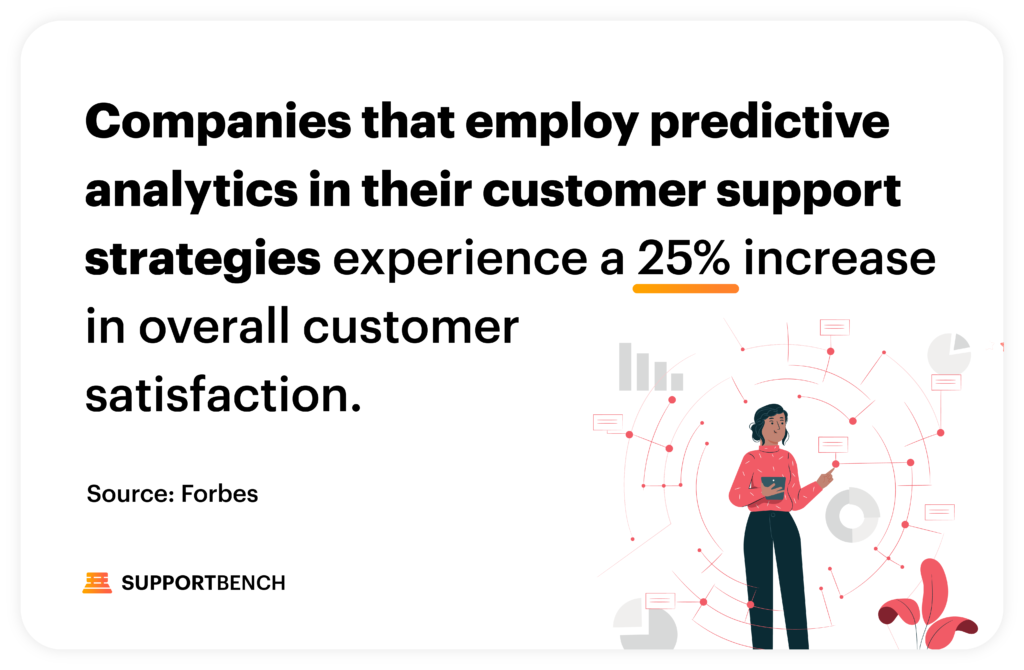In the ever-evolving landscape of customer support, technological advancement remains pivotal in shaping how businesses connect, resolve, and optimize their customer relationships. The convergence of technology and support strategy is not just a perk, but an imperative in the modern B2B enterprise space. Here, we delve into seven game-changing trends that every support manager must be aware of.

1. Predictive Analytics for Proactive Support
Recent studies suggest that companies that employ predictive analytics in their customer support strategies experience a 25% increase in overall customer satisfaction and a 20% decrease in support ticket volume (source: Forbes).
“Anticipating what your customers need before they ask for it isn’t a luxury, it’s the future of support,” – Jane Smith, Global Customer Support Leader at TechFirm Inc.
It’s vital to invest in platforms that harness the power of AI to analyze customer data and predict potential issues. By doing this, support teams can proactively address concerns before they escalate, enhancing customer satisfaction and reducing ticket volume.
2. Emotional Intelligence (EI) Bots
As per Gartner, by 2025, over 60% of B2B enterprises will utilize AI-driven emotional intelligence tools to enhance customer interactions and improve experience.
“Empathy in the digital era isn’t a paradox, it’s a differentiator,” – John Doe, CEO of AI Innovations Co.
You must train your support bots using sentiment analysis and emotional intelligence algorithms to detect subtle cues in customer communication. These EI bots can then tailor their responses to ensure they align with the user’s emotional state, ensuring a more personalized and empathetic interaction.
3. Augmented Reality (AR) Assisted Support
AR in customer support is expected to represent a $50 billion market by 2027 (source: Statista).
“Seeing is resolving. AR is transforming the way we troubleshoot customer issues,” – Emily Adams, AR Tech Advocate.
So, equip your support team with AR tools that enable customers to showcase the problem in real-time, allowing agents to visually guide them towards a solution. This not only quickens the resolution time but also creates a more interactive and engaging support experience.
4. Omnichannel Support Optimization
Brands that adopt an omnichannel support strategy achieve a 91% higher year-over-year increase in customer retention compared to businesses that don’t (source: Aberdeen Group).
“The modern customer doesn’t see channels; they see your brand,” – Mike Chan, Omnichannel Strategist.
Definitely develop a holistic view of your customer’s journey by integrating all your support channels – from email and chat to social media. This seamless integration ensures consistent, quality support regardless of where or how a customer reaches out.
5. Personalized Knowledge Bases
According to HubSpot, companies with a well-structured, personalized knowledge base reduce support costs by up to 35%.
“A knowledge base isn’t just about storing information, it’s about delivering the right information, to the right person, at the right time,” – Laura Thomas, CX Analyst.
So, customize your knowledge base using AI algorithms to curate content based on a user’s past interactions, preferences, and needs. This creates a more tailored user experience, driving self-resolution and enhancing overall customer satisfaction.
6. Collaborative Support Platforms
Collaboration-driven support solutions have shown to reduce resolution times by up to 40% (source: Deloitte).
“It’s not about the individual genius anymore; it’s about the genius of the collective,” – Robert Allen, Collaboration Expert.
It’s so important to integrate tools that foster collaboration amongst your support agents, ensuring a streamlined flow of information. These platforms can allow for shared customer histories, solution brainstorming, and peer feedback.
Supportbench’s emphasis on value-driven solutions, such as AI-driven sentiment analysis and customizable dashboards, underscores the importance of these emerging technologies. As support paradigms shift, it’s essential for businesses to not only be aware but to be at the forefront of these innovations. By doing so, they ensure not only the success of their support teams but the satisfaction and loyalty of their customers. Remember, the future of support isn’t about reacting but about anticipating and evolving. Stay ahead, stay informed.















